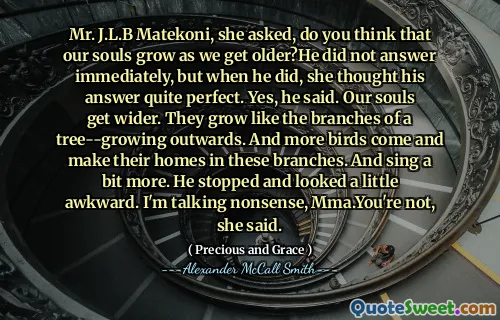
The soul is one in its nature, but its entities are many.
This quote highlights the profound idea that, at its core, the soul remains fundamentally singular and unified. Yet, it manifests in numerous entities, forms, or expressions. Such a perspective invites us to contemplate the nature of individuality and unity simultaneously. In our everyday experience, we observe countless variations—our thoughts, feelings, physical appearances, and roles in society—each representing different entities or facets of ourselves. Despite this apparent multiplicity, the underlying essence remains singular, indelibly connected and unified. This concept echoes many philosophical and spiritual traditions that emphasize the oneness of existence, suggesting that all forms are interconnected expressions of a singular truth. It challenges us to see beyond superficial differences and recognize the divine or true nature underlying the multiplicity of existence. For instance, in understanding human diversity, this viewpoint encourages tolerance and compassion, acknowledging that while individuals may appear different outwardly, they share an intrinsic core. Moreover, this idea can be beneficial in personal development, recognizing that the multiplicity of our experiences, emotions, and thoughts does not define us entirely; instead, they are parts of a unified self. This holistic view fosters mental peace and spiritual awakening, inspiring individuals to look inward and appreciate the interconnected nature of all existence. Embracing both unity and diversity allows us to live more harmoniously, appreciating the complexity of life while connecting deeply with our essential truth. ---Dayananda Saraswati---








